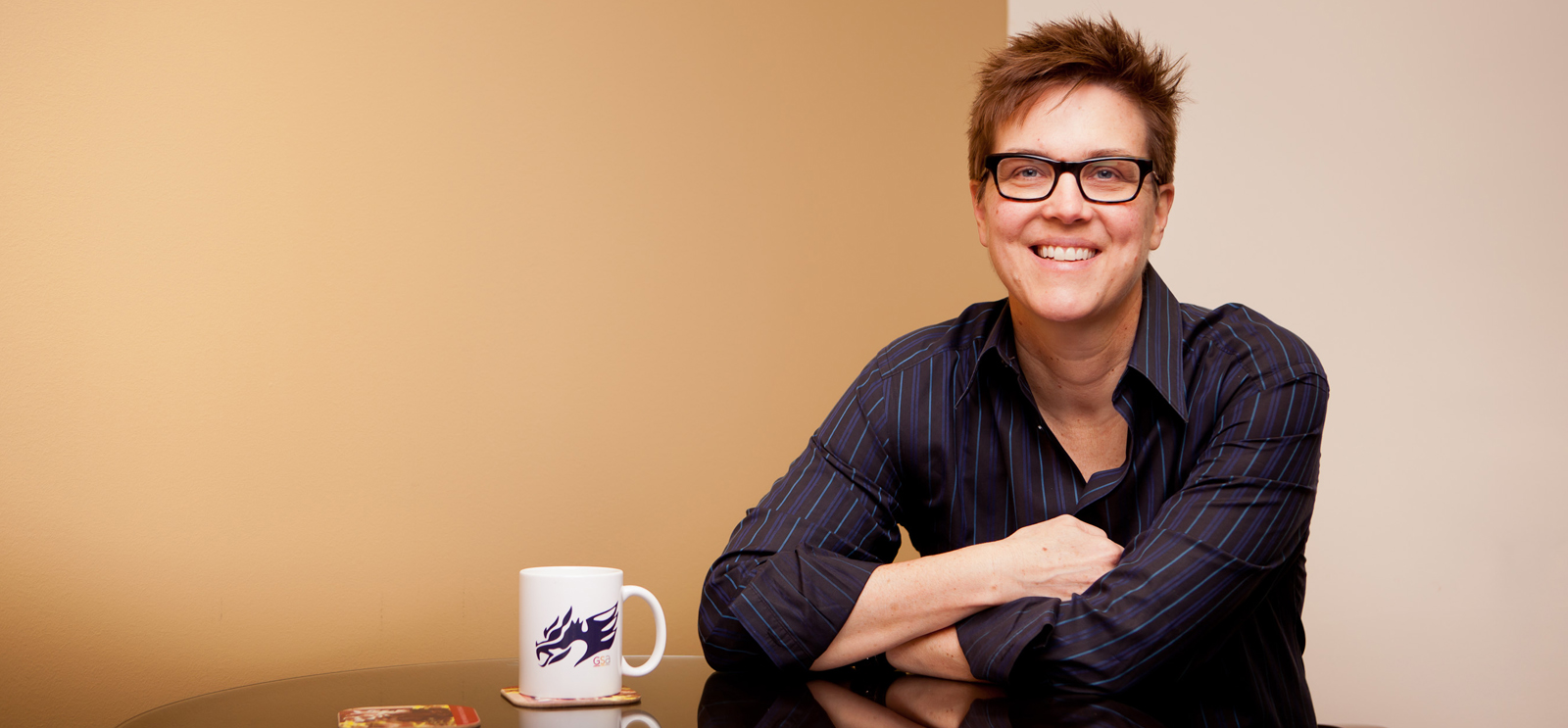
(Photo courtesy Deborah Nelson)
The writers and artists in Deborah Nelson’s new book believe a world of suffering calls for a dispassionate eye.
Among the 20th-century women intellectuals discussed in associate professor of English Deborah Nelson’s new book are Susan Sontag, AB’51, and Hannah Arendt, who taught in the John U. Nef Committee on Social Thought from 1963 to 1967. They and the other four thinkers in Tough Enough: Arbus, Arendt, Didion, McCarthy, Sontag, Weil (University of Chicago Press, 2017) were known for an outward toughness—or, in the eyes of their critics, heartlessness—that, Nelson contends, was more than a matter of style. It reflected a deliberate prioritizing of thought over feeling, a commitment to “the aesthetic, political, and moral obligation to face painful reality unsentimentally.”
For these writers and artists, that painful reality was human suffering on the massive scale witnessed during the Holocaust, the World Wars, and other 20th-century conflicts. As women, expected by their culture to be feeling creatures, Nelson writes, “they had to be unusually thoughtful about the choice to be unsentimental.”
What was the nature of the unsentimentality that each of the century’s most prominent women intellectuals, in her own fashion, practiced and advocated? How was it different from simply not being sentimental? And why did they believe it was necessary? In an interview condensed and edited here, Nelson discussed her book with the Magazine.
What’s the connection between toughness and unsentimentality?
I think toughness is the practice and unsentimentality is the result. One of the things I wanted to suggest is that unsentimentality is something—it’s not the absence of emotion or the absence of inflated emotion. You can identify it as a style. It’s not affectless—Arendt thinks it’s terrifying to be affectless in the face of great suffering. Unsentimentality is a practice of engagement; it’s just not a practice of engaging other people’s feelings about something.
Take the image I use at the beginning of the Mary McCarthy chapter, with McCarthy and Arendt standing on a subway platform looking out. It’s that kind of thing: we’re both looking at the world together, but we’re not looking at each other’s reactions. It’s actually making you more sensitive to the world.
How can that be?
A lot of these women think that tenderness involves your attention to your own feelings and your own sense of being wounded by the thing you’re seeing. So Arendt asks, how did rank-and-file SS men do these horrible things day after day? Their pity was directed toward themselves. I try to show how toughness involves the senses but not the emotions, which they argue dull or even anesthetize the sensory apparatus.
Sontag, you write, somewhat paradoxically wanted to control feeling in order to enhance feeling.
It doesn’t really work, right? I’m not saying she’s figured it out. I think she was wary of feeling too much but wanted to feel intensely. All of them have a sense that feeling is not subject to cultivation and training. Knowing and appreciating the world comes through the senses, which can be trained. That’s what the original meaning of aesthetic is: the education of the senses. If you are overwhelmed by feeling, then you are not able to sense things.
Is this disciplining of feeling in the interest of the self?
No, I think it’s in the interest of the world. You cannot develop proper citizenship if you are overcome or distracted or self-aggrandizing. I don’t think it’s about self-cultivation at all. It’s about management of the self in the service of the world, whether that’s in art or politics. You have to act in a world of suffering. You’re not going to know what you’re doing unless you can really look, without being overwhelmed.
They all believe that pain is just ordinary. The world hurts you, but you have to accept it, because you have to keep doing, looking, sharing, experiencing—even if it’s making you feel uncertain about your beliefs or your actions, or making you feel that you don’t know what’s going to happen tomorrow. For Arendt you had to really resist the temptation to comfort, certainty, all of those things. That meant you had to live with a basic level of distress.
Do these thinkers have heirs today?
Rebecca Solnit [historian, activist, and National Book Critics Circle award winning author] is someone I might think of. She has that brash, vigorous kind of unsentimental prose. Obviously she’s a feminist and she takes up issues that they wouldn’t have touched. I would point to [professor and cultural critic] Laura Kipnis as well. I don’t think there’s any one. There are so many more women writing and getting published and finding audiences. The women in the book had the stage to themselves in a way that isn’t possible anymore.
